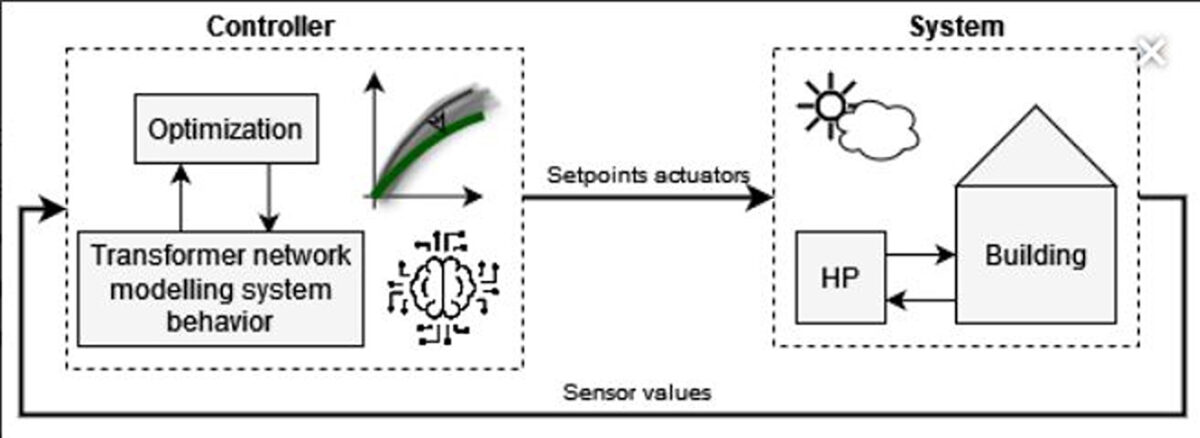The research team conducted a series of simulations on the AI-based heat pump controller in three different buildings for a period of one heating season.
“The questions on self-calibration and the adaptability to new environmental conditions were both answered positively,” the scientists said. “Depending on the building, the resulting energy savings were shown to be 13% on average compared to the standard heating curve.”
Matching the reference room temperature with the setpoint temperature was crucial for the controller's performance. “Further energy savings can be expected if the controller is extended to include the efficiency characteristics of the heat pump,” the researchers said.
They also tested the controller in a real building for one week and found it “significantly” improved the heat pump's coefficient of performance (COP).
“Compared to the reference period, the AI controller recorded a COP increase of 25%, although this needs to be evaluated in more detail during longer field test series and with different building types,” they said. “Notable is that the algorithm led to the establishment of stable heating curve parameters after just a few days.”
EDF has tested the controller's efficiency for producing domestic hot water (DHT) and found the heat pump reduced power consumption by up to 8%.
This content is protected by copyright and may not be reused. If you want to cooperate with us and would like to reuse some of our content, please contact: editors@pv-magazine.com.




By submitting this form you agree to pv magazine using your data for the purposes of publishing your comment.
Your personal data will only be disclosed or otherwise transmitted to third parties for the purposes of spam filtering or if this is necessary for technical maintenance of the website. Any other transfer to third parties will not take place unless this is justified on the basis of applicable data protection regulations or if pv magazine is legally obliged to do so.
You may revoke this consent at any time with effect for the future, in which case your personal data will be deleted immediately. Otherwise, your data will be deleted if pv magazine has processed your request or the purpose of data storage is fulfilled.
Further information on data privacy can be found in our Data Protection Policy.